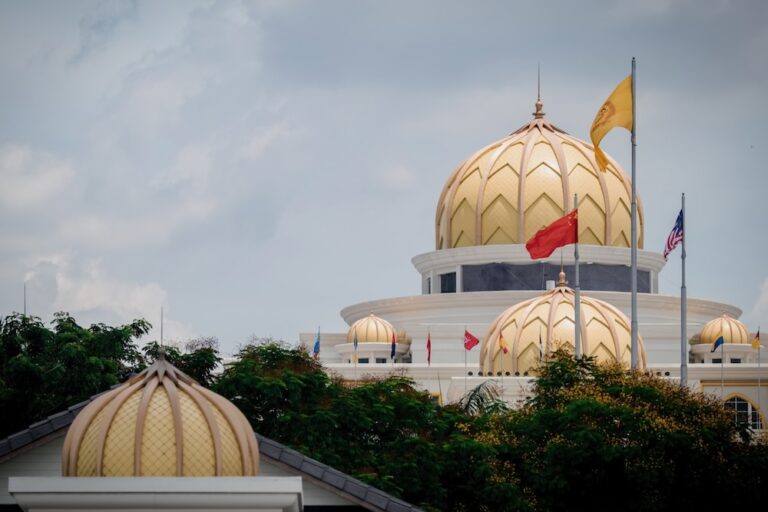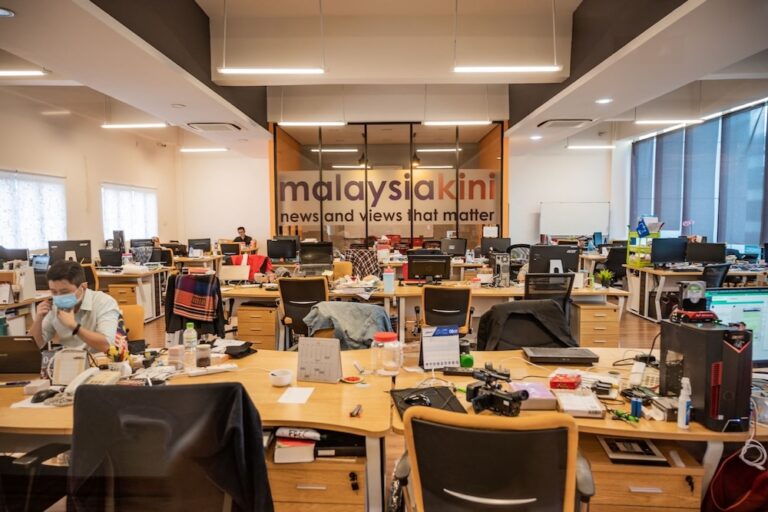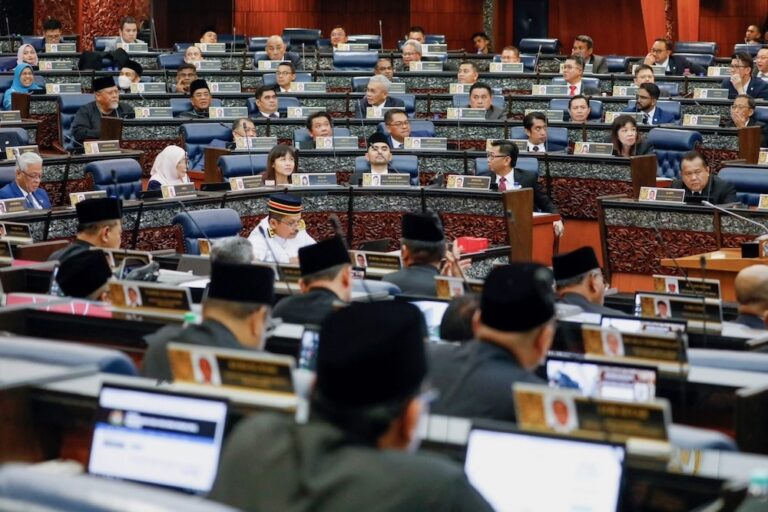(CPJ/IFEX) – CPJ is deeply disturbed by Information Minister Mohamed Rahmat’ s announcement on 9 August 1998 that he plans to impose new rules and restrictions that would allow the government to more closely monitor the movements of foreign journalists in the country. Foreign journalists working in Malaysia are already required to register with the […]
(CPJ/IFEX) – CPJ is deeply disturbed by Information Minister Mohamed Rahmat’
s announcement on 9 August 1998 that he plans to impose new rules and
restrictions that would allow the government to more closely monitor the
movements of foreign journalists in the country.
Foreign journalists working in Malaysia are already required to register
with the Home Ministry in order to obtain a work permit. They also must
provide the Information Ministry with details about their personal and
professional background, as well as information about their employer, before
obtaining a press pass. While the minister did not reveal the specifics of
his proposal, he did make his intentions clear by saying, “If there is
negative and bad news, we will then know who is responsible. . . . We are
not preventing them, but we want to know who they are, so that we can
resolve any problems that arise.”
Rahmat also criticized Malaysians who work for the foreign press, accusing
them of disloyalty and warning them “not to resort to slanting reports or
write highly speculative reports just to please their employer.”
As a nonpartisan organization dedicated to the protection of press freedom
worldwide, CPJ is dismayed by the recent trend in Malaysia toward
censorship. CPJ sent a letter to His Excellency Dato’ Seri Dr. Mahathir
Mohamad on 15 July 1998, expressing fear that the 14 July resignation of
group editor in chief Johan Jaafar from Malaysia’s most influential
publishing company, Utusan Melayu Bhd., was the result of intense political
pressure, and is part of the government’s strategy to suppress independent
voices in the country (see IFEX alert of 16 July 1998). Just days after
Jaafar stepped down from his post, Ahmad Nazri Abdullah, group editor of
Malaysia’s largest selling daily, “Berita Harian”, followed suit. Abdullah’s
resignation prompted parliamentary opposition leader Lim Kit Siang to warn
of a crackdown on the local media, charging that the two editors were forced
to resign for trying “to promote greater space for independent,
investigative, and critical journalism.”
While the government has denied any involvement in these affairs, Deputy
Information Minister Suleiman Mohamad told local reporters on 26 July that
“If the media indulges in activities that threaten political stability or
national unity, we will come down hard regardless of whether they are local
or foreign.” He went on to say that “the local media is kept in check with
the Internal Security Act,” which allows officials to arrest suspects
without trial, and that the government would not hesitate to “black out”
foreign news reports that portray the country in a negative light.
Recommended Action
Send appeals to Prime Minister Dato’ Seri Dr. Mahathir Mohamad:
the press in Malaysia
there are sufficient remedies available for redress in civil law
contemptuous of press freedom referring to it as the “freedom to tell lies”
reminding him that economic advancement and democratic reform are possible
only through the
open exchange of ideas by an uninhibited press
Appeals To
His Excellency Dato’ Seri Dr. Mahathir Mohamad
Prime Minister
Jabatan Perdana Menteri
Jalan Dato’ Onn
Kuala Lumpur 50502
Malaysia
Fax: +60-3-238-3784
Please copy appeals to the source if possible.


